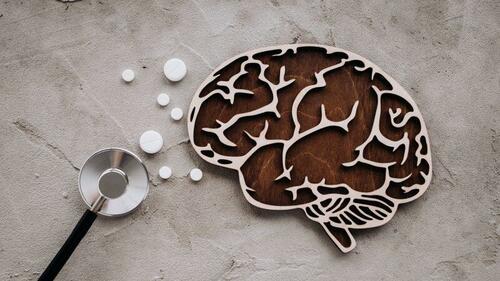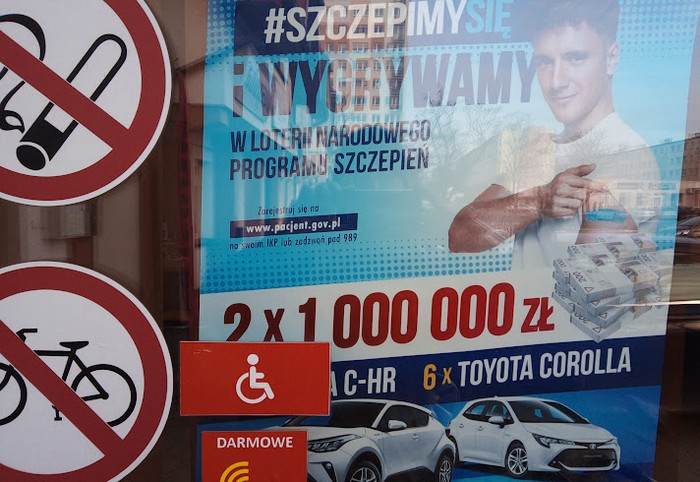
The Pandemic Of Fake Psychiatric Diagnoses
Authored by Peter C. Gøtzsche via The Brownstone Institute,
On 12 September, UK child and adolescent psychiatrist Sami Timimi published “When mental-health diagnoses become brands, the real drivers of our psychic pain are hidden” in the Globe and Mail, a Canadian newspaper.

In his superb article, Sami carefully explains how he arrives at his painful conclusion:
You see there is a truth that we (in the mental-health business) hope no one will notice – we literally don’t know what we are talking about when it comes to mental health.
An obvious problem is that all definitions of psychiatric disorders are subjective. They are not objective facts such as a broken bone is. This means they can be expanded in a myriad of ways to capture a kaleidoscope of distress, alienation, and dissatisfaction, and that psychiatric diagnoses are consumer brands, not medical diseases.
In medicine, a diagnosis is aimed at determining which disease explains a person’s symptoms and signs, which enables effective matching of a treatment to address specific disease processes.
This is not the case in psychiatry. And all psychiatric drugs have nonspecific effects that are not directed against some cause of a disease. Their effects are similar to those of alcohol, narcotics, and other brain-active substances.
But, as Sami explains, increasingly, youngsters are getting diagnosed with ADHD, trauma, depression, anxiety, PTSD, autism, and often several such diagnoses. Their conversations may address gender identity, neurodiversity, and “having” a mental health disorder such as ADHD.
The facts are that virtually no one is in doubt about whether they are male or female; neurodiversity is a meaningless concept used by psychiatrists to impress the public about how knowledgeable they are but it just means that all people are not the same; and one cannot “have” ADHD, which is just a name for a subjective description of rather common behaviours and therefore cannot explain anything.
What people should realise is that it is part of being human to have difficulties that can be handled better if we don’t give people psychiatric diagnoses and drugs. Difficulties often have a cause that has nothing to do with being ill, e.g. poverty, trauma, inadequate housing, social injustice, marital problems, discrimination, exclusion, bereavement, unemployment, and financial insecurity. Life is not easy, but if you have difficulty coping with its challenges, you can easily get one or more psychiatric diagnoses.
There is a lot of misinformation that leads people astray, in scientific articles, newspapers, TV, radio, and social media. When youngsters look up descriptions of people who say they “have” ADHD on social media, they may be convinced they “have” it too and may even self-diagnose. There is an element of social contagion in this, and the criteria for ADHD are so vague and ludicrous that when I lecture and ask people to use the adult ADHD test on themselves, it never fails that one quarter to half the audience test positive.
Often, authoritative information is also seriously misleading or even mendacious, which I have documented in my books and articles, most recently in my freely available book, “Is psychiatry a crime against humanity?” and in the freely available article, “The only medical specialty that survives on lies.”
Sami mentions a patient information leaflet on antidepressants produced by a British national mental health service that includes the following advice:
It can sometimes take weeks, months or even years, to get the right medicine at the right dose for you. Think of it as a bit like dating. Some make you feel sick or sleepy; some are great to start with but wear off; others may not be much to start with but after a while grow on you. Then you might have found the one that makes you feel good long-term. So don’t lose hope if the first one doesn’t work.
It is an illusion to think that if you wait long enough and try enough drugs, one will work for you. Most mental health issues become better with time, without any treatment, which is misinterpreted as a drug effect, and research has shown that it doesn’t help to change drugs or increase the dose of drugs (see my freely available “Critical Psychiatry Textbook”).
The illusion that it helps to try several antidepressant drugs comes from the STAR*D trial, a $35 million fraud funded by the US National Institute of Mental Health.
Sami writes that he is impressed by the extraordinary ability of even the most severely afflicted of the young patients he sees to recover functionality and meaning in their lives. His advice to parents with troubled kids is that they should not agree to having their children assessed for ADHD, autistic spectrum disorder, or anxiety (or depression, as depression drugs double suicides). We should be able to talk about how we feel without jumping into panic mode and imagining that what we’re describing could be the onset of some mental disorder. Sami goes on to say that,
As we are launched into a seemingly never-ending search for the right diagnosis and treatment, we start collecting labels and accompanying interventions. Each step in this journey has the potential to make it harder to accept your child (or yourself) just the way they are with all their uniqueness and the mysterious wonderful variety of ways they might thrive in this maddening world. Be patient and categorize psychological problems in the sphere of the ordinary and/or understandable…Our duty as parents (and to each other as adults) is not to prevent our children from experiencing distress (which is impossible), but to be there and take the time and have the patience to be with them and support them when they do.
Beware of concept creep. As what I call the Mental Health Industrial Complex has burrowed its way into day-to-day language and “common sense,” concepts have been popularized that encourage us to view behaviours and experiences in pathological ways. We no longer become sad or miserable, we get depressed…You and your children’s experiences nearly always sit in the realm of the ordinary and/or understandable…Arming yourself with some knowledge to help you avoid the prolific spread of scientism (faith masquerading as science) could save you or your child becoming another number in the growing crowds of those who are deemed to have lifelong and incapacitating mental disorder/illness. These conditions were never meant to be a life sentence.
If all doctors heeded Sami’s advice, fewer people would kill themselves and fewer people would become permanently disabled. But in a world where healthcare is heavily influenced by the drug industry’s corruption of doctors, it is reasonable to ask: Are psychiatrists more mad than their patients? I have responded in the affirmative.
Like me, Sami is a member of the Critical Psychiatry Network based in England. My experience with lecturing for psychiatrists has led me to believe that over 99% of psychiatrists are uncritical towards their practice. Think about it. This is why psychiatric drugs are the third leading cause of death and why psychiatry as a profession does far more harm than good.
Don’t our kids and friends deserve better than this?
Tyler Durden
Thu, 09/18/2025 – 22:35


















